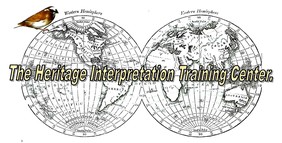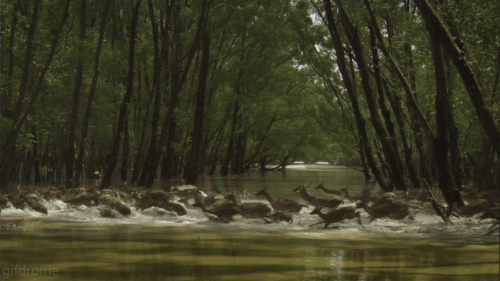John Veverka & Associates
Main menu:
- Home Page
- Our Range of Services
- Interpretive Coaching
- Interpretive Planning
- Interpretive Plan Outline
- Interpretive Training
- John Veverka Resume
- NEW Advanced Interp. Text Book
- InterpNEWS
- Library
- JVA NEWS, Courses and Updates
- Certificates
- Planning/Design of Interpretive Panels
- Interpretive Writing
- Interpretive Writing Course
- Interpretive Trails Course
- Interpretive Panels Course
- Introduction to Heritage Interpretation Course
- Interpretive Planning & Design of Marketing Brochures Course
- Training for Interp. Trainers
- Interpretive Exhibits Course
- Interpretive Master Planning Course
- Interpretive Planning for Scenic Byways.
- Critiquing and Coaching Interpretive Staff
- Advanced Interpretive Planning
- Interpretive Training Center Course Catalogue
- Interp. for International Visitors course.
- Interpretive Exhibits Evaluation
- Interp. Center Feasibility Analysis Course.
- Interp. for Commercial Tour Providers
- Interpretive Researchers Guide for Visitor Studies
- Interp. Planning for Historic Homes
- Heritage Interpretation Training Center
- Interpretive Planning for Botanical Gardens
- An introduction to planning and presenting live interpretive programs and tours for Museum/Heritage Site Docents and Volunteers.
- Developing Marketing Plans for Heritage & Tourism Sites and Attractions
- Interpretation Book Store
- Heritage Interpretation Resource Center
- Interpretive Planning for Historic Farms
- Developing Successful Partnerships
- Developing Interpretive Outreach Programs
- Community Interpretation Planning
- Interpreting Gravestones and Historic Cemeteries
- Using Interpretation to Accomplish Management Objectives.
- An Interpreters Guide for Survival Economics.
- Innovative Strategies for Interpretive Media and Services Planning.
- A Curators Guide for Developing Gallery Tours.
- Advanced Interpretive Writing - Technical Publications
- Advanced Interpretive Services for Managers, Supervisors, Team Leaders and Sr. Staff.
- Advanced Interpretation for Chiefs of Interp. - Interpretive Managers - Regional Interp. Specialists
- Interpreting Critical Issues.
- Developing Commercial Interpretation for Resorts, Cruise Ships, Campgrounds and Tourism Attractions.
- Planning and developing a new commercial tour guiding business.
- Interpretive Evaluation, Visitor Studies and Site Assessment Center
- The Center for Interpretive Planning Advancement & Excellence.
- Developing Requests for Proposals (RFPs)
- Planning and Facilitating Focus Workshops
- Planning for Interpretive Experiences
- 40 Years a Heritage Interpreter
- Interpretive Techniques - The Rest of the Story Course
- Certified Professional Interpretive Planner Certificate
- Certified Professional Interpretive Program
- Certified Professional Interpretive Writer certificate program.
- Visitor motives for attending interpretive programs.
- Exhibit Rehab Course
- Developing Training Workbooks & Manuals
- Planning for Railroad Museums and Sites.
- Climate Change Interpretation Course.
- When there's nothing left but the story - interp. storytelling.
- Interpreting Legends Myths and Fables
- InterpSHARE - Seminars 2022
- Interpreting Invasive Species
- Interpretiing Edible Insects
- Interpretaive Planning for Climate Change
- HITC Climate Crisis Resource Center
- PUP Members Only
- Starting a new Interp Consulting Business
- Panels 4 Week Course
- Interpretive Writing - 4 Week Course
- Marketing - 4 Week Course
- Intro to Interpretation - 4 Week Course
- Interp Climate Change - 4 Week Course
- Exhibit Rehab 4-Week Course
- Level 1
- Johns Interpreters Blog
- John Interpreters Blog 2
Using Interpretation to Accomplish Management Objectives.

Using Interpretation to Help Accomplish Management Objectives
Twelve Units, Two CEU Credits
Tuition - $250.00
Critical management issue - interpreting wildlife damage and overpopulation..
The idea of using interpretation to help accomplish management objectives is relatively new, but gaining in use. Originally interpreters main jobs were to serve as "entertainment directors" for parks, historic sites, etc. Most of the early photographs of interpreters or "naturalists" usually had them pointing at something - flowers, geological features, historic structures and so on. And in most professional job settings we were expendable. Whenever there was a budget problem, the interpreters in the agencies were the first to go. After all, they didn't do anything "essential". The agencies, or the interpreters themselves hadn't realized the true potential and value of interpretive communications to address management issues and critical issues sites or agencies may face, both short and long term.
What kinds of management issues can interpretation help with? Here are a few:
- Help promote water safety issues (wearing Personal Floatation Devices, not drinking alcohol while boating, swimming safety) and many other safety issues as well.
- Help protect cultural sites or resources from vandalism.
- Help visitors understand various resource management programs and activities they may see such as prescribed burns or removal of invasive plant species.
- Helping to prevent the spread of invasive species such as zebra mussels.
- Wilderness hiking safety and stewardship issues.
- Understanding ecosystem management activities and the benefits of this management approach to the environment, communities, and the visitor.
- Protecting historical and archaeological resources from visitor damage or collecting.
- Helping to instill a sense of ownership and pride in local resources or history to gain community support of various management programs and policies.
- Help in the recruitment of volunteers.
- Gaining political support for bond issues and other revenue political actions.
- Increasing visitation numbers and improved marketing strategies.
And the list can go on and on.
It is the goal of this course to help participants identify, recognize and utilize interpretive communications to help address their unique management issues for their site or organization and develop interpretive media and services strategies the mitigate these challenges and gain the visitor's support in addressing them.
About the Instructor: Prof. John Veverka
- B.S and M.S in Heritage Interpretation - The Ohio State University
- Ph.D. program in Interpretation at Michigan State University.
- Adjunct Professor Heritage Interpretation (summer heritage tourism institutes) North Carolina State University,
- New York State University. Adjunce Professor, Heirtage Tourism Institute.
- NAI Certified Interpretive Planner and Trainer
- NAI Fellow
- Certified Professional Heritage Interpreter (Canada).
- Author of several interpretive planning/training college text books.
- Publisher of InterpNEWS - the International Heritage Interpretation e-Magazine.
- 40 years of interpretive planning, training and writing experience.
What are the Units?
Unit One - an overview of interpretive principles and techniques.
Unit Two - The interpretive planning model for developing your "interpretation as a management tool" strategies.
Unit Three - The math - cost/contact and cost effectiveness of using interpretation to help reduce or eliminate the management issue or problem.
Unit Four - What is (are) the management issues you want interpretation to help address?
Unit Five - What are the objectives you want your interpretive media to help accomplish related to your management issues?
Unit Six - Using interpretation to address long term issues (vandalism, damaging historic sites or archaeological sites, etc.).
Unit Seven - Using interpretation to address short term management challenges (hunting seasons and hunter safety, bird migration and nesting area closures, etc.).
Unit Eight - Using interpretation to address critical issues (forest fires, flooding, etc.)
Unit Nine - Developing the best interpretive media options to address specific management issues or challenges.
Unit Ten- Developing your marketing strategy to address visitor involvement or role in solving or minimizing the management issue(s).
Unit Eleven - Monitoring and evaluation - is your strategy working to reduce or address the management issue? Setting up a monitoring program.
Unit Twelve - sharing what you learned from your activity - conferences or articles in interpretive publications.
Here is how to register and pay for the course:
1. Contact John Veverka by e-mail to see if you have any questions about the course. Contact John at: jvainterp@aol.com.
2. You can start the course at any time and work on your own pace.
3. Click on the "Pay Now" button to pay the course tuition by PayPal or Credit Card.
4. John will send you Unit One and all related course materials and an e-copy of his text book "Interpretive Master Plannning". He will also be happy to chat with you as well to make introductions and get you going.
5. If you have questions or like to talk at any timeyplease feel free to ask and we can chat by E-Mail, phone or skype.